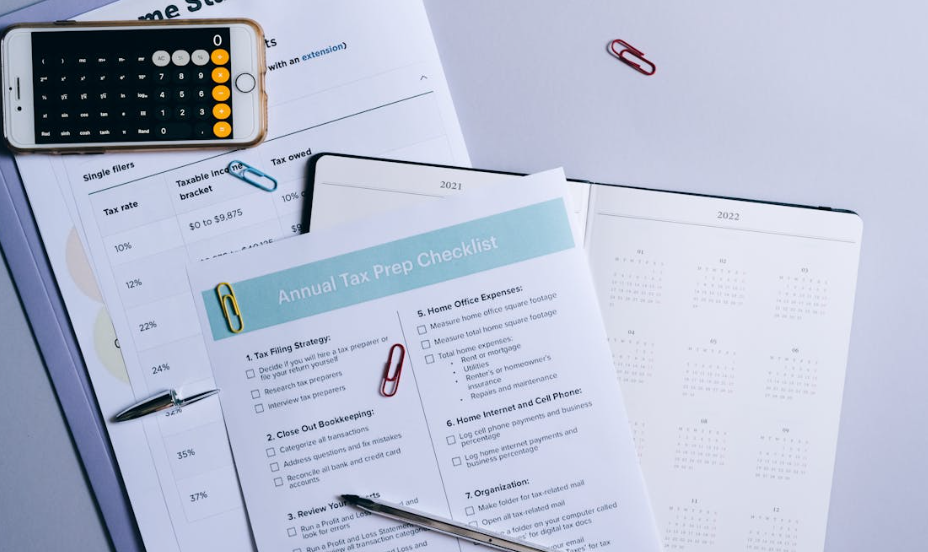Introduction
Understanding the tax implications of private health insurance is essential for anyone self-employed in the UK. Many self-employed individuals wonder, is private health insurance tax deductible for self-employed UK? In this comprehensive guide, we will provide detailed insights into this critical subject to help you manage your finances effectively, remain compliant with HMRC rules, and make well-informed financial decisions.
What is Private Health Insurance for the Self-Employed?

Private health insurance, often referred to as private medical insurance (PMI), is a policy that covers the costs of private healthcare, such as specialist consultations, diagnostics, surgery, and hospital stays. It enables faster access to healthcare services without relying solely on the NHS, ensuring timely treatment and a quicker return to work.
For self-employed individuals, maintaining good health is directly tied to business survival. Therefore, purchasing private health insurance is a wise investment to protect one’s personal health as well as one’s career.
Benefits of Private Health Cover for the Self-Employed
- Quick Access to Healthcare Services: Avoid long NHS waiting lists and receive quicker diagnoses and treatments, which helps maintain business momentum.
- Reduced Downtime and Faster Return to Work: Access to swift treatment ensures minimal interruption to business activities and client obligations.
- Choice of Hospitals and Specialists: Flexibility to select hospitals, clinics, and consultants guarantees top-quality, customised healthcare.
- Peace of Mind: Having quick access to healthcare reduces tension, enabling company owners to concentrate on confidently running and expanding their companies.
Why Should the Self-Employed Consider Private Health Insurance?
Private health insurance is a smart consideration for self-employed individuals because maintaining good health directly impacts their income. Without access to statutory sick pay, a health crisis can cause significant financial strain. Furthermore, timely treatments and peace of mind ensure operational continuity and long-term business success.
Key reasons include:
- Avoiding Income Loss: Prompt treatments reduce work absences.
- Preserving Professional Reputation: Reliable service delivery builds client trust.
- Reducing Stress: Knowing that healthcare needs are covered allows focus on business growth.
- Controlling Health Costs: Unexpected medical bills are reduced by predictable insurance rates.
How Does Private Health Insurance Reduce Business Disruption?
Statutory sick pay does not apply to self-employed people. Significant financial loss might result from postponing medical care. Private health insurance helps maintain operational continuity and customer service levels by providing immediate access to healthcare services.
- Protects Income Streams: Fast recovery supports uninterrupted project delivery.
- Safeguards Business Reputation: Ensures commitments to clients and partners are met.
- Maintains Client Trust: Minimises project delays and service disruptions.
How Does Private Health Insurance Provide Financial Security?
Without insurance, even minor procedures can result in substantial healthcare bills. Private health insurance mitigates this risk, offering structured cover for various medical costs, including surgeries, hospital stays, and rehabilitation services.
- Predictable Medical Expenses: Avoids unexpected financial strain.
- Covers Specialist Treatments: Access expensive procedures without depleting personal savings.
- Budget Management: Easier financial planning with known premium costs.
Is Private Health Insurance Tax Deductible for Self-Employed in the UK?

The simple answer is NO.
For an item to be eligible for a deduction, HMRC states that it must be incurred “wholly and exclusively” for business purposes. Since private health insurance benefits the individual’s personal well-being and not the business directly, it is classified as a personal expense and does not qualify for tax relief.
- Not a Direct Business Need: Health is personal, not business-critical under tax law.
- Personal Benefit: Primarily protects the individual, not the enterprise.
- HMRC Compliance: Strict separation between personal and business expenses is enforced.
How Does HMRC Define “Allowable Business Expenses”?
Allowable business expenses are essential costs incurred exclusively in the operation of your business. They reduce your business’s taxable profit.
What Expenses Qualify?
- Office Supplies: Stationery, laptops, printers, and essential office furniture.
- Business Travel Costs: Hotel stays, mileage, airfares for client meetings and events.
- Marketing and Advertising Expenses: Website development, content marketing, PPC advertising.
- Professional Fees: Accountancy, legal consultations, business advisory services.
Private health insurance is considered a private benefit and thus fails to meet the “wholly and exclusively” requirement under HMRC guidelines.
Why is Private Health Insurance Generally Not a Tax-Deductible Expense?
Private health insurance is deemed a personal benefit, as it serves the well-being of the individual rather than directly advancing business operations. Even though healthier individuals can arguably work more effectively, HMRC rules maintain that private benefits cannot be claimed as business expenses.
- Improves Individual Welfare: Not essential for carrying out business tasks.
- Not Mandated for Business Operations: Unlike insurance for premises or equipment.
- No Direct Business Advancement: Offers personal security rather than corporate functionality.
Are There Any Exceptions Where Health Insurance Might Be Tax Deductible?
While typical private health insurance is not tax-deductible, certain policies can qualify as business expenses under specific conditions.
Possible Exceptions Include:
- Keyman Insurance shields companies against monetary losses brought on by the illness or passing of a key employee.
- Employee Health Insurance: Permitted as a business expense if provided to employees (not sole traders).
Both options must be carefully structured to ensure they meet HMRC requirements.
What is Keyman Insurance?
Keyman insurance is designed to compensate a business financially for the loss of a vital team member. It ensures the enterprise can maintain operations or recover from the impact of the loss, making it a justifiable business expense.
- Protects Business Revenue: Pays for hiring and onboarding new employees.
- Mitigates Business Risks: Stabilises cash flow during critical personnel losses.
- Supports Investor Confidence: Demonstrates foresight and financial planning.
How Can Self-Employed Individuals Structure Health Insurance for Tax Efficiency?

Self-employed individuals looking for tax-efficient solutions should consider setting up a limited company. Through a company structure, private health insurance can be offered as part of an employee benefits package.
Should You Set Up a Limited Company?
Establishing a limited company offers several benefits, including better ways to manage health insurance benefits.
- Business Paid Premiums: Premiums are deducted before corporation tax.
- Extended Benefits Package: Include bonuses, pensions, and health insurance.
- Employee Perk: Offer healthcare perks for attracting talent if hiring.
How Does a Limited Company Offer Health Insurance?
- The business makes policy payments directly.
- Declared on employee P 11D forms annually.
- Corporation tax relief claimed on total expenses.
- Class 1A NIC is paid by the company on the benefit value.
What is a Salary Sacrifice Scheme?
Employees can exchange a portion of their pay for non-cash perks like private health insurance through salary sacrifice.
- Gross Salary Reduction: Decreases taxable income slightly.
- Not Fully Tax-Free: Employee still taxed on the benefit value.
- Saves NIC Contributions: Modest savings on national insurance.
What alternatives exist for health and well-being coverage that might be tax-deductible?

Health Cash Plans
Health cash plans reimburse low-cost treatments and routine healthcare expenses.
- Covers Everyday Expenses: Dental check-ups, eye tests.
- Lower Cost: More affordable premiums than full private health insurance.
- Tax-Deductible When Structured Properly: Must be available for all employees.
Business Health Insurance Policies
Covering a group rather than an individual can offer tax advantages.
- Spread Across Workforce: Tax-deductible as a business-wide perk.
- Boosts Staff Retention: Enhances employee satisfaction and loyalty.
Employee Assistance Programmes (EAPs)
Offering counselling and mental health support, EAPs improve employee wellbeing and productivity.
- Corporate Wellbeing Investment: A tax-deductible cost.
- Reduction in Absenteeism: Healthier, more productive employees.
Table: Comparison of Different Health Cover Options for Tax Efficiency
| Cover Type | Tax-Deductible? | Notes |
| Private Health Insurance | No | Personal benefit, non-deductible |
| Keyman Insurance | Yes | Business-focused policy, deductible under conditions |
| Health Cash Plans | Sometimes | Must be available to all employees |
| EAPs | Yes | Fully deductible if offered to all employees |
What Are the Tax Implications if You Provide Health Insurance to Employees?

What is a P11D Form?
The P11D form reports any benefits given to employees, such as private medical insurance, ensuring correct tax calculations.
- Filed Annually: Must submit to HMRC every year.
- Includes Value of Benefits: Such as healthcare, company cars, or accommodation.
What is Class 1A National Insurance?
Employers must pay Class 1A NIC on the cash equivalent of benefits provided to employees.
- Employer Liability: Paid by the company, not the employee.
- Calculated at Standard NIC Rates: Based on benefit values.
Can Businesses Claim Corporation Tax Relief?
Yes, businesses can offset the cost of employee benefits, including health insurance, against their corporation tax liabilities, even if the employee is taxed on the benefit.
How Do Different Business Structures Affect the Tax Deductibility of Health Insurance?

Sole Traders and Partnerships
- Personal Expense: Private health insurance premiums for sole traders and partnerships are considered personal expenses.
- No Tax Deduction: These costs cannot be offset against business profits or claimed to reduce taxable income.
- Limited Flexibility: Sole traders must personally fund their health insurance without tax advantages.
Limited Companies
- Business Expense: A limited company can purchase private health insurance for directors and employees.
- Corporation Tax Relief: The company can deduct the cost of the insurance as a business expense when calculating profits.
- Employee Benefit Reporting: The value must be reported on a P11D form, and employees will pay tax on the benefit.
- Employer NIC: Class 1A National Insurance Contributions on the benefit value must also be paid by the business.
Choosing the correct business structure can open avenues to greater tax efficiency while providing essential health coverage.
What Are Some Tax-Efficient Alternatives to Private Health Insurance?

For those seeking health benefits with potential tax advantages, there are alternatives to traditional private health insurance:
Health Cash Plans
- Routine Cover: Reimbursement for everyday health costs such as dental work and optician services.
- Lower Premiums: More affordable than full private health insurance policies.
- Tax Deductible When Structured Properly: Must be made available to all employees to qualify.
Employee Assistance Programs (EAPs)
- Mental Health Support: Access to counselling, stress management, and mental wellbeing resources.
- Tax-Deductible: EAPs can often be claimed as a fully deductible business expense.
- Boost Productivity: Supporting employee wellbeing can enhance overall business performance.
Wellness Programs
- Preventative Care: Gym memberships, health screenings, and wellness workshops.
- Universal Offer: Should be available to all employees to qualify for tax benefits.
- Enhanced Employee Satisfaction: Wellness initiatives contribute to a healthier, more motivated workforce.
Employing these alternatives can create a healthier working environment while offering potential tax advantages.
What Are Some Common Mistakes Self-Employed People Make Regarding Health Insurance and Taxes?
Common Pitfalls
- Incorrect Expense Claims: Leads to HMRC penalties.
- Failure to Report Benefits: Attracts financial penalties and reputational damage.
- Misunderstanding Allowable Expenses: Creates compliance issues and increases tax liabilities.
- Neglecting Alternative Benefits: Overlooking health cash plans, EAPs, and wellness initiatives.
How to Keep Accurate Records for Health Insurance Costs?

Maintaining organized and thorough records is essential for smooth tax reporting and compliance.
Importance of Bookkeeping
Accurate record-keeping ensures that every claim, deduction, and report is backed up by evidence, protecting you during audits.
- Separate Accounts: Maintain distinct accounts for business and personal expenses.
- Digital Storage: Keep scanned copies of invoices, receipts, and insurance documents.
- Expense Categorization: Clearly label whether costs are personal or business-related.
- Regular Reviews: Reconcile accounts monthly and conduct periodic reviews with a professional accountant.
Good bookkeeping practices make tax filing straightforward and defendable in case of HMRC audits.
Conclusion
To answer the primary question: is private health insurance tax deductible for self-employed UK? — The general rule is no. Private health insurance is viewed as a personal expense by HMRC and is not allowable as a business deduction. However, options like keyman insurance, employee health schemes through limited companies, and alternative benefits like health cash plans and EAPs can offer more tax-efficient solutions. Structuring your health benefits carefully and seeking professional tax advice is essential to optimize tax efficiency while maintaining compliance.
FAQs
Can I Deduct Private Health Insurance Premiums?
No, private health insurance premiums are classified as personal expenses and are not allowable against taxable business profits.
Is Health Insurance for My Employees Tax-Free?
No, workers are required to pay taxes on the benefit’s value. Nonetheless, the employer is eligible to receive corporation tax relief for the cost.
Should I Consider a Limited Company for Better Tax Benefits?
Yes, limited company structures provide more options for managing tax efficiently through business expenses, including employee health benefits. It also opens doors for offering broader employee benefits and improving overall tax efficiency.
What Happens If I Wrongly Claim Health Insurance as a Business Expense?
Incorrect claims can result in back taxes, interest, and penalties following an HMRC audit. Always seek professional advice. To avoid risks, always verify claims with up-to-date HMRC guidance or consult a qualified accountant before submission.
Can I Include Family Members in the Health Insurance Policy?
Family members can be included, but unless they are bona fide employees, premiums for their coverage would not be tax-deductible.
I’m Laura Wilson, a passionate blogger and content creator with a deep interest in business, finance, and entrepreneurship. I’ve had the opportunity to write for several premium blogs, sharing insights & practical advice for individuals & small businesses. I’m the founder and publisher of ukbusinessmag.co.uk, where I focus on creating valuable, easy-to-understand content to help UK startups & SMEs grow.


